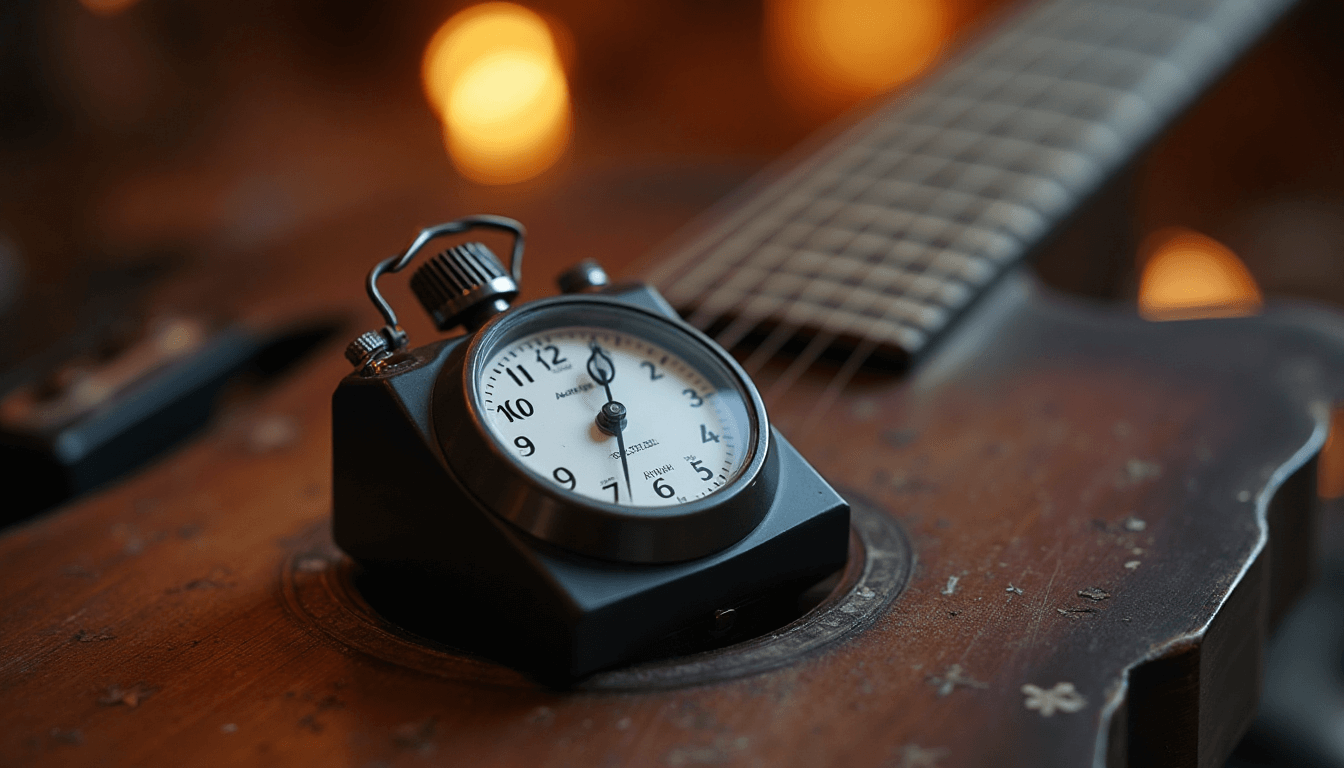Sep 6, 2024 11:00:28 AM
Five Biggest Mistakes to Avoid When Starting to Learn Guitar

Starting your guitar journey is like stepping into a world full of melodies, riffs, and endless possibilities. But like any new adventure, there are a few potholes you’ll want to dodge to keep the ride smooth and enjoyable. Whether you’re just picking up your first six-string or already strumming away, avoiding these common mistakes will set you up for a more fun and fulfilling experience. So grab your guitar, tune up, and let’s make sure you’re jamming, not stumbling!
Skipping the Basics - body posture, guitar positioning, pick angle
Starting your journey to learn guitar is exciting, but it's crucial to lay a strong foundation by focusing on the basics. A common pitfall for beginners is skipping essential elements such as body posture, guitar positioning, and pick angle, thinking they can jump straight into playing their favorite songs. However, overlooking these fundamentals can lead to frustration and slow down your progress.
Proper body posture is the cornerstone of playing the guitar effectively. Maintaining a relaxed but upright position helps prevent strain and enhances your playing ability. Equally important is how you position the guitar. Whether you're sitting or standing, ensure the guitar is comfortably accessible, allowing you to reach all parts of the fretboard without awkward stretching.
Another key aspect is the angle at which you hold the pick. A small change in the angle can significantly impact your sound and speed. Keep the pick slightly angled to avoid it catching on the strings, allowing for smoother strumming and picking.
Neglecting Proper Finger Positioning
One of the most frequent guitar mistakes beginners make is neglecting proper finger positioning. It might seem trivial at first, but improper finger placement can lead to unwanted string buzz, muted notes, and even physical discomfort. When you first start to learn guitar, it's crucial to develop good habits from the get-go.
Ensuring your fingers are positioned correctly on the fretboard can make a world of difference. Your fingertips should press down close to the fret wires, but not directly on them, to produce clean and clear notes. Additionally, keeping your fingers curved and using the tips enhances precision and reduces unnecessary pressure.
Think of finger positioning as a foundation skill. By focusing on it early, you'll avoid common pitfalls and set yourself up for more complex playing techniques down the road. Remember, it's not about pressing harder but pressing smarter. Overcome these initial challenges by spending a few extra minutes each practice session on finger placement. The investment will pay off in your sound quality and confidence.
Ignoring Sound, Rhythm and Timing
As you embark on your journey to learn guitar, it's easy to get caught up in playing fast or mastering complex solos. However, ignoring sound, rhythm, and timing is one of the most significant mistakes you can make. The essence of music lies in its rhythm and timing, and sidelining these elements can impede your growth as a guitarist.
Sound quality is often a reflection of your technique. Pay attention to the clarity and consistency of the notes you produce. Rhythm, on the other hand, is the heartbeat of music. Developing a sense of timing and rhythm helps you play in sync with other musicians, making your practice sessions and jam experiences more rewarding.
Use a metronome or rhythm app to practice keeping time. Initially, it might feel challenging, but with consistent use, it'll become second nature. Remember, it's not just about hitting the right notes, but also playing them at the right time.
Overlooking the Importance of Consistent Practice
Consistency is key when it comes to learning any skill, and the guitar is no exception. One of the most common pitfalls for beginners is overlooking the importance of consistent practice. It's tempting to practice irregularly or only when you're feeling motivated, but this approach can hinder your progress significantly.
Setting aside even a small amount of time each day for focused guitar practice can lead to substantial improvements over time. Consistent practice helps reinforce muscle memory, making complex finger movements feel more natural. Moreover, it aids in retaining what you learn, allowing you to build on your skills progressively.
Try to integrate guitar practice into your daily routine. Create a practice schedule that suits your lifestyle, whether it's 15 minutes a day or an hour every couple of days. Regularity is more important than the length of each session. By committing to consistent practice, you will overcome initial learning obstacles incrementally, paving the way for a rewarding musical journey.
Setting Unrealistic Expectations
It's easy to dream big when you first start to learn guitar, envisioning yourself playing complex solos or performing on stage in no time. However, setting unrealistic expectations is a frequent mistake that can lead to disappointment and frustration. Understanding that learning the guitar is a gradual process, filled with small victories, is essential.
Setting attainable goals helps maintain motivation and provides a clear path for progress. Begin with simple chords and songs, gradually advancing to more challenging pieces as your skills improve. Celebrate small achievements along the way; they are indicators of your progress.
Remember, even the most skilled guitarists were once beginners. By pacing yourself and being patient, you will embrace the learning process and will stay motivated by keeping sight of your progress, not by comparing yourself to others.
Bonus: Giving Up Too Soon
Embarking on the journey to learn guitar is thrilling, but the path is often paved with challenges. A common pitfall is the temptation to give up too soon, especially when progress seems slow or hurdles appear insurmountable. It's important to remember that every guitarist faces their own set of challenges; perseverance is key.
Reflect on why you wanted to learn guitar in the first place, and let that passion drive you. Remind yourself that setbacks are a natural part of the learning process, and each one provides a valuable lesson. Seek support from fellow musicians, join online communities, or consider taking lessons to reignite your motivation.
Also, revisit your practice habits. Sometimes, a small change in your routine can make a significant difference. By pushing through the tough times, you build resilience and confidence. Your dedication will eventually pay off, sparking joy and satisfaction each time you pick up the guitar.
Final Thoughts
Most importantly, remember to have fun! Playing guitar is all about expressing yourself and enjoying the music you create. So pick up your guitar, keep these tips in mind, and rock out. The world (or at least your room) is your stage!

The 15-Minute Guitar Ritual That Transforms Beginner Guitarists without Endless Practice

Guitar Picking Mechanics: Master Speed and Dexterity Today

The Backwards Guitar Revolution: Why I Turned Traditional Teaching Upside Down